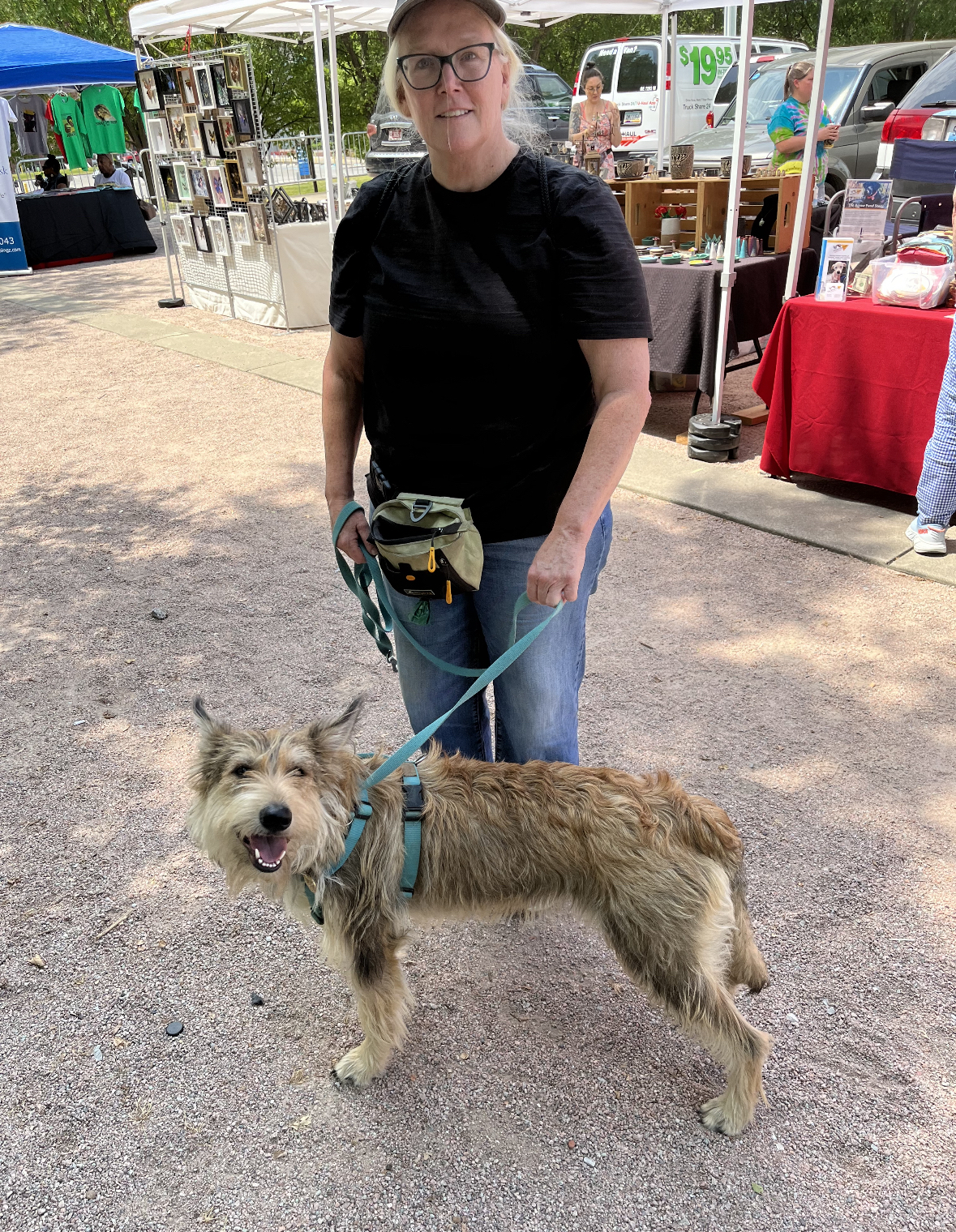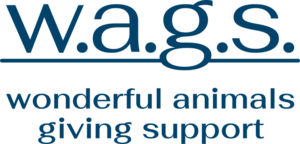
Spotlight on Peggy Modjeski
How to Help a Puppy Become a Wagger ~ Spotlight on Peggy Modjeski
By Denise Cunningham
It is our distinct privilege to spotlight a life-long lover of animals, who grew up with dogs, cats, horses, and even had a pet raccoon. Peggy’s admiration for animals is apparent.
Peggy moved to Louisville in 1969 where she attended high school and college studying to be a registered nurse who practiced for over 40 years in a hospital setting. Peggy retired 7 years ago when her heart dog became ill – he died two years ago after being diagnosed with heart failure.
Peggy had Australian Shepherds, Pax and Madigan, who became WAGS certified and ultimately visited at Norton’s Hospital (Pax and Madigan have since died). In August 2022, Peggy acquired Tansy, a Berger Picard, who is all puppy and a lot of fun and full of energy.
For a number of years, Peggy has engaged in dog training, who first ventured out on her own and then as a protegee of our very own, Linda Laun. Peggy is now a private trainer.
As a lover of animals, Peggy believes that dog training is the perfect blend of animals, science, philosophy, and psychology. Peggy states that dog training has evolved over the years from forceful methods to positive reinforcement training.
Peggy’s first bit of advice is to research your breed of choice for the right fit for the family and lifestyle of the owner(s). Peggy goes on to say when adopting or purchasing a mixed breed or particular breed, or a puppy or adult, training is critical from the very beginning to integrate your new dog into your family and society. Puppies are essentially easier to train because they haven’t had time to practice unwanted behavior. Peggy further explains that puppies come with their own set of challenges such as potty training, short attention spans, and periodic fear periods that need to be considered while training.
One of the components of a good training plan is management of the environment. Peggy suggests the use of crates, ex-pens, and gates at home and during travel. A crate or ex-pen is not to be used as a punishment, but rather utilized as a safe place while not under constant supervision. (During covid many stayed at home with their dog; when they went back to work, some dogs experienced separation anxiety). Peggy works from home and while working, Tansy stays in her crate in another room of the house where she is able to be away from Peggy without being distressed. Supervised Separation is a part of the Canine Good Citizen test and is a good skill for a dog to learn.
Next, one of the most important things we can do for our dogs is socialization. Exposure to new places, people, animals, and situation in a calm safe way provides our dogs to grow into confident resilient dogs.
Peggy encourages people to advocate for their dog. Peggy does not allow Tansy to greet every dog or person she meets on outings and feels comfortable telling people no so Tansy does not become overwhelmed.
Peggy states that we are very fortunate to have so many training opportunities involving different events in Louisville. Peggy loves taking classes with Tansy, who has already earned her CGC and novice Tricks titles. Peggy and Tansy are currently participating in beginner Barn Hunt class. Peggy adds that she accomplishes several personal training sessions per day with Tansy, walks several miles, and goes on a dog-friendly outing everyday, thereby laying the foundation for Tansy to possibly become a WAGS pet therapy dog, but only if Tansy finds enjoyment in that line of activity.
Lastly, Peggy offers that one of the most important skills for a dog parent is to learn to read their dog’s body language, “Dogs have a lot to say if we train ourselves to notice.”
Peggy is married to Charles Stoll and between them they have six children. Peggy was WAGS President in 2015, and was also an Evaluator.
